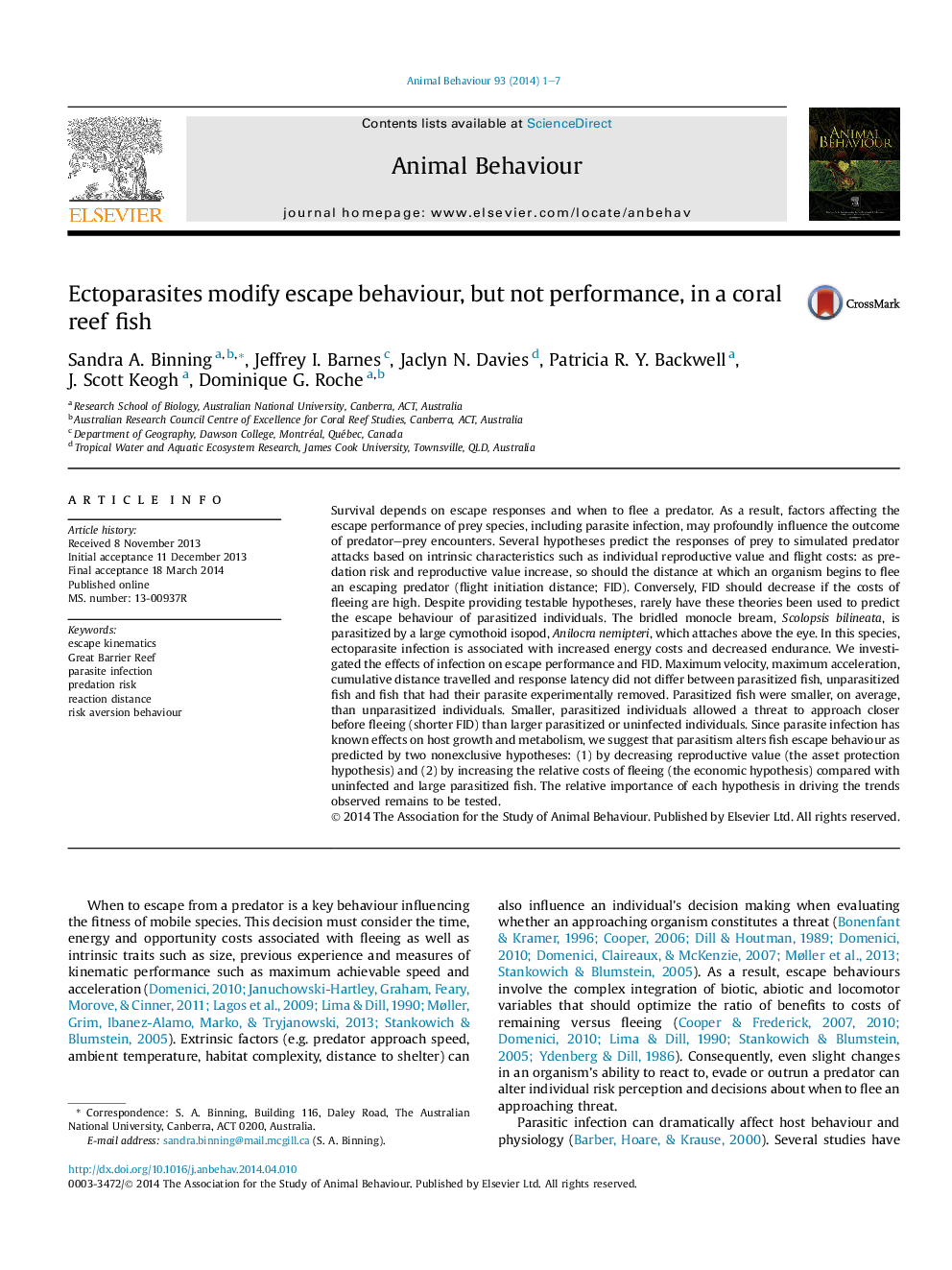| کد مقاله | کد نشریه | سال انتشار | مقاله انگلیسی | نسخه تمام متن |
|---|---|---|---|---|
| 8490416 | 1552235 | 2014 | 7 صفحه PDF | دانلود رایگان |
عنوان انگلیسی مقاله ISI
Ectoparasites modify escape behaviour, but not performance, in a coral reef fish
دانلود مقاله + سفارش ترجمه
دانلود مقاله ISI انگلیسی
رایگان برای ایرانیان
کلمات کلیدی
موضوعات مرتبط
علوم زیستی و بیوفناوری
علوم کشاورزی و بیولوژیک
علوم دامی و جانورشناسی
پیش نمایش صفحه اول مقاله

چکیده انگلیسی
Survival depends on escape responses and when to flee a predator. As a result, factors affecting the escape performance of prey species, including parasite infection, may profoundly influence the outcome of predator-prey encounters. Several hypotheses predict the responses of prey to simulated predator attacks based on intrinsic characteristics such as individual reproductive value and flight costs: as predation risk and reproductive value increase, so should the distance at which an organism begins to flee an escaping predator (flight initiation distance; FID). Conversely, FID should decrease if the costs of fleeing are high. Despite providing testable hypotheses, rarely have these theories been used to predict the escape behaviour of parasitized individuals. The bridled monocle bream, Scolopsis bilineata, is parasitized by a large cymothoid isopod, Anilocra nemipteri, which attaches above the eye. In this species, ectoparasite infection is associated with increased energy costs and decreased endurance. We investigated the effects of infection on escape performance and FID. Maximum velocity, maximum acceleration, cumulative distance travelled and response latency did not differ between parasitized fish, unparasitized fish and fish that had their parasite experimentally removed. Parasitized fish were smaller, on average, than unparasitized individuals. Smaller, parasitized individuals allowed a threat to approach closer before fleeing (shorter FID) than larger parasitized or uninfected individuals. Since parasite infection has known effects on host growth and metabolism, we suggest that parasitism alters fish escape behaviour as predicted by two nonexclusive hypotheses: (1) by decreasing reproductive value (the asset protection hypothesis) and (2) by increasing the relative costs of fleeing (the economic hypothesis) compared with uninfected and large parasitized fish. The relative importance of each hypothesis in driving the trends observed remains to be tested.
ناشر
Database: Elsevier - ScienceDirect (ساینس دایرکت)
Journal: Animal Behaviour - Volume 93, July 2014, Pages 1-7
Journal: Animal Behaviour - Volume 93, July 2014, Pages 1-7
نویسندگان
Sandra A. Binning, Jeffrey I. Barnes, Jaclyn N. Davies, Patricia R.Y. Backwell, J. Scott Keogh, Dominique G. Roche,